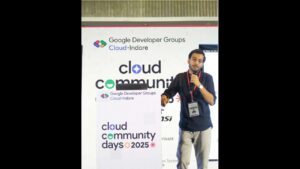As industries evolve in the digital era, hybrid infrastructure, combining on-premise systems with cloud services, has become essential to balancing control, scalability, and advanced capabilities like AI and machine learning. Major League Baseball (MLB) is no exception, adopting this model to enhance real-time analytics, player performance metrics, and in-game decisions.
Cross-domain integration in MLB enables the seamless exchange of data between secure on-prem systems and scalable cloud platforms, transforming how teams manage operations and make critical decisions. This shift mirrors similar transformations across industries like healthcare, finance, and e-commerce, where sensitive data integrity and scalable resources are essential.
In baseball, where real-time data shapes in-game decisions, managing data flows between legacy systems and cloud platforms is crucial. Hybrid infrastructure enables MLB teams to secure sensitive player data while leveraging cloud scalability to analyze performance metrics in real time.
Implementing Continuous Integration/Continuous Deployment (CI/CD) pipelines, for example, has reduced update times for player performance systems by 40%. This ensures coaches and analysts receive critical data faster, enabling real-time tactical adjustments that can directly impact game outcomes. Additionally, this integration streamlines scouting reports, allowing teams to be more agile and responsive in high-pressure situations.
Scalability is a vital advantage of hybrid cloud solutions. MLB teams experience spikes in data processing needs during game days, and cloud-based solutions provide the dynamic scaling necessary to handle these peaks efficiently.
By integrating cloud infrastructure with DevOps practices, MLB teams ensure system stability and performance during high-demand periods without overspending. For instance, one team achieved a 25% reduction in operational costs by optimizing their cloud-based data processing, which enabled them to handle game-day data loads while maintaining high availability for player tracking and video analysis systems. The cloud also provides access to advanced tools like machine learning models, offering deeper insights into player performance and strategy.
Data integrity is paramount in high-stakes environments like professional sports, where sensitive player information and game analytics must be both secure and accessible. “Hybrid infrastructure adoption in MLB has required robust disaster recovery solutions to maintain data security while ensuring operational uptime” he mentioned.
MLB teams have partnered with cloud providers such as AWS and Google Cloud to integrate disaster recovery protocols. This collaboration has reduced recovery times from hours to minutes, greatly enhancing operational resilience. Moreover, these systems ensure compliance with MLB’s data handling regulations, protecting sensitive player data while maintaining performance during live games.
This approach mirrors trends in industries like finance and healthcare, where hybrid disaster recovery systems are becoming standard for ensuring business continuity. DataOps, which automates data pipelines, has been instrumental in improving the flow of real-time game stats and performance metrics in MLB. Automating these workflows has minimized inconsistencies and enhanced the accuracy and timeliness of player statistics across systems.
Moreover, one implementation led to a 30% increase in the reliability of real-time game data, ensuring coaching staff had access to accurate information during games. This improvement empowered faster decision-making, giving teams a competitive edge in critical moments. With DataOps, teams can manage data efficiently and react swiftly to in-game dynamics without delays caused by manual data processing.
Looking ahead, integrating cloud-native solutions with advanced AI and machine learning will further revolutionize how MLB teams process and use data. The continued growth of hybrid cloud models will allow teams to manage workloads with more flexibility, adapting to evolving data needs and market demands.
MLB teams are already using AI to enhance decision-making by analyzing vast amounts of player data to optimize in-game strategies. This trend is likely to accelerate as AI-driven insights provide more advanced perspectives on player performance and game dynamics.
In MLB, this approach has proven to be transformative, improving everything from player performance analysis to game-time strategy. Beyond sports, hybrid infrastructure adoption showcases its potential across industries to provide flexibility, scalability, and security in the digital era. As technology continues to advance, this model of integration will drive future innovations on and off the field, ensuring organizations can meet the demands of a rapidly changing landscape.











